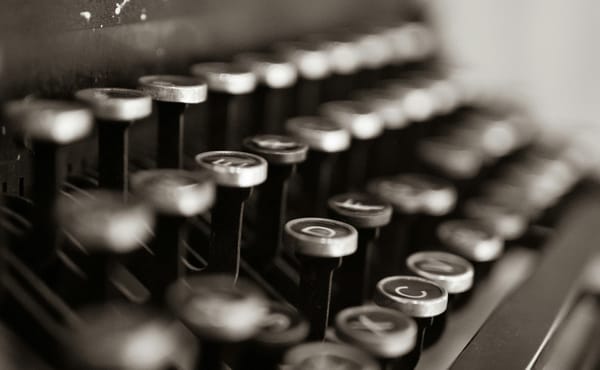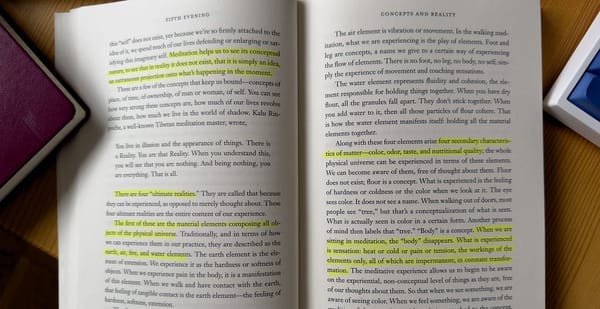How I totally lost it. A Weight Loss Story for your 2024 Goals

With a new year finally here, many will be looking for inspiration to lose weight. And I thought that I'd selfishly capitalise on the increase in google search traffic and give you the story of my (ongoing) weight loss journey and how, after two years, I'm still going strong and have been able to keep it off. In addition, I hope to pass on some lessons that I have learned, give some tips, hopefully inspires and just for fun - call out some of the lies that you may have found yourself believing.
I would like to think of myself as a seasoned dieter as for years I had attempted every fad diet and quick fix out there - from the infamous and retched 'cabbage soup diet' to the extreme and irresponsible Cambridge Diet (sorry Cambridge dieters, but it's true), Keto, Paleo, Slimming World, Weight Watchers and Jane Plan - I have tried them all.
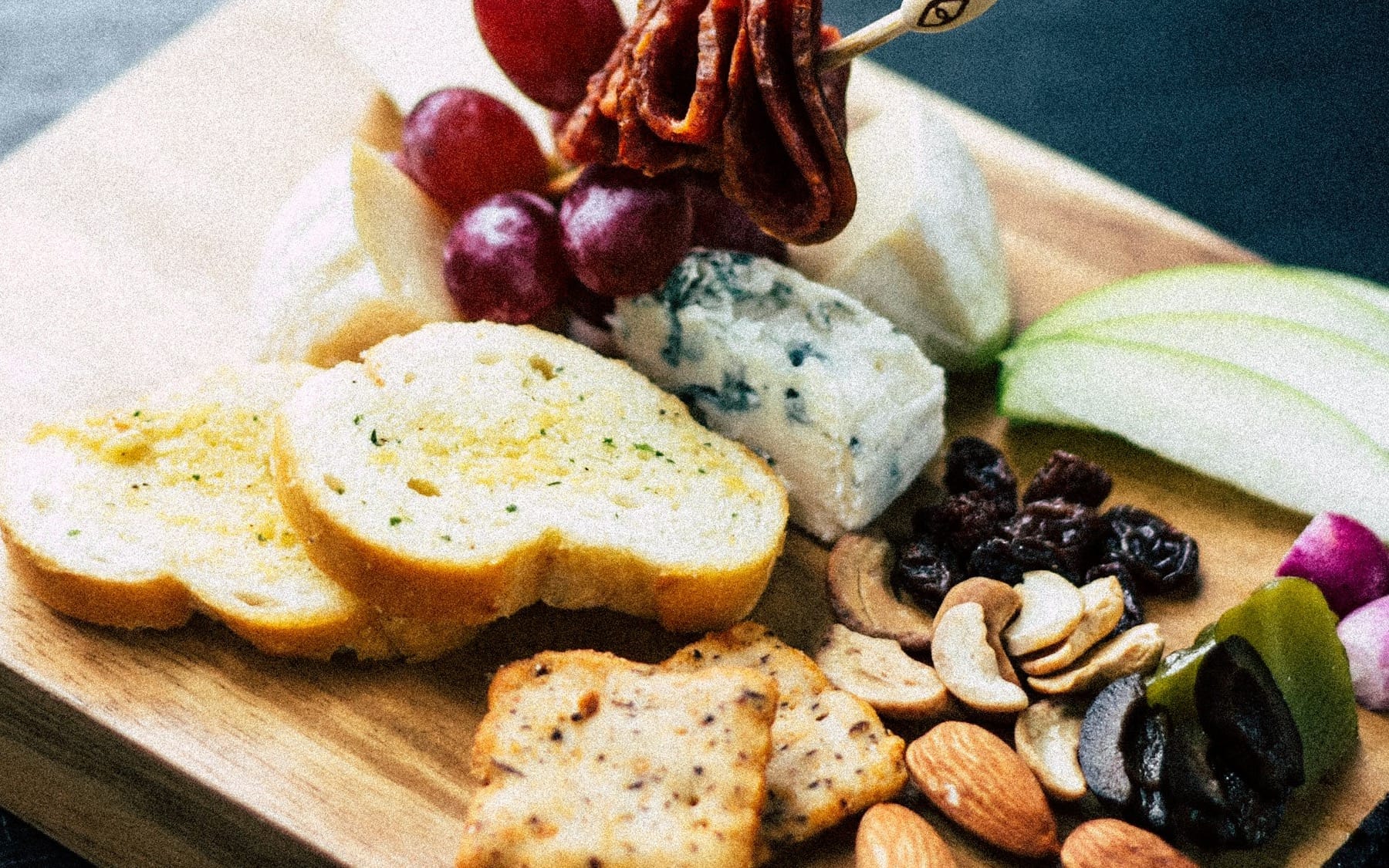
The Final (cheese) Straw
2021, Boxing Day in fact, I was sat in a Hotel in Mexico with my now husband and I said to him "We really need to lose weight, and we have to keep it off" I was depressed and ashamed of how I looked. We’d originally travelled to Mexico with a goal to make travel content for YouTube, but I put the camera away after the first day. I had ballooned to over 21 stone and though I would consider myself a happy person most of the time, I had terrible anxiety about my appearance.
At the time, as part of the decision to finally start taking weight loss seriously, I decided that the best strategy was to take it slow and make only small and meaningful changes. The decision to not make huge sweeping alterations to my daily life was intentional because I knew from past experience that by making too many changes - such as going to to the gym three times a week, getting up at 6am, meditation practice, eating well, reading more - I would give up in two minutes after being totally overwhelmed. Trust me when I say this, know yourself and start small and work up from there. Therefore, the choice to join a local gym, well that was a hard no. The idea of going to a gym just once, let alone regularly, was horrendous. I was terrified of looking like a complete twat, they were expensive and with my work schedule it seemed like making the time for fitness would be impossible. It was never going to happen.
In hindsight, I was just afraid to make that change. I’d attempted the gym and diets in the past and I’d failed each and every time. When I look back, fear got the better of me. But, and I think this is an important side note; I still believe that by delaying going to the gym and adding fitness to my life was the right choice, for me. At the time of writing this, I have now been going to the gym for 18 months, so for the first 6 months I didn’t do any strength training whatsoever. I do want to make a point about training in the gym, and particularly personal training: The investment that I did eventually make in my body and working out is quite literally the best investment that I’ve made in myself. I’m just talking about physical change, but focus, mental health and even mental clarity has improved exponentially and I could go on for thousands of words on why. (But I won’t in this blog).
Also, I want to preface (bit late for a preface, but whatever) this rather lengthy piece with a disclaimer, I am stating that all the advice given, and the testimonies are based on my experiences. Everyone is different, with different biologies and heath needs. Plus, I’m not a doctor, nutritionist or bullshit Instagram fitness influencer. So, I’m only qualified to - actually I’ve got a GCSE in Drama, so there’s that.
Without further ado, cast you mind back to Christmas 2021.
The Choice of Diet Doesn’t Matter. (Just use some common sense)
So, it's Boxing Day and Glen mentioned 'Jane Plan' another one of those mail-in diets where your prepared meals are sent to you. We decided ‘in for a penny, in for a pound’ - well, in fact we were in for more than £200 a month - but we figured that this would actually work out a bit cheaper from what we were spending on food. Yeah, that didn’t work out as intended, because the meals were quite small and we found ourselves adding extra protein to the meals. It should be noted that Jane Plan is, in my opinion, engineered towards the female biology specifically. Which means the calories per day are lower, so as a man, I could get away with adding extra protein.
Counting Does Matter
The thing is this though: Though we were eating Jane Plan meals daily and adding extras, everything was tracked and we were pedantic about it.
This brings me to the first not-so-secret to weight loss success: TRACK EVERYTHING. Seriously, buy some £10 scales from Amazon and get into the habit of tracking all your food. I use the app NutraCheck on iOS (This is probably the best app if you live in the UK, as it has a huge database of UK Foods) - but there are others. Anyway, there are calories in things like sauces and all those little extras you don't think about, but by getting into the habit of tracking everything, you'll find that you are a little less carefree with with foods that will sabotage your success. A good example here is that 15ml of Light Mayo has 40 calories and if you weight out 15ml of Mayo you’ll notice that it’s really not very much at all - especially if you have a condiment problem, like I do.
I won't lie to you, at first counting calories can feel like a massive chore in itself, but I think that one of the cornerstones to success when it comes to any weight loss journey is to ensure that your weight loss is EVIDENCE AND SCIENCE BASED. And this takes me onto my second key tip for weight loss success.
You’ve heard of a calorie deficit - of course you have - social media if full of fitness influences trying to see you some bullshit PDF with the advice I’m about to give you for free.
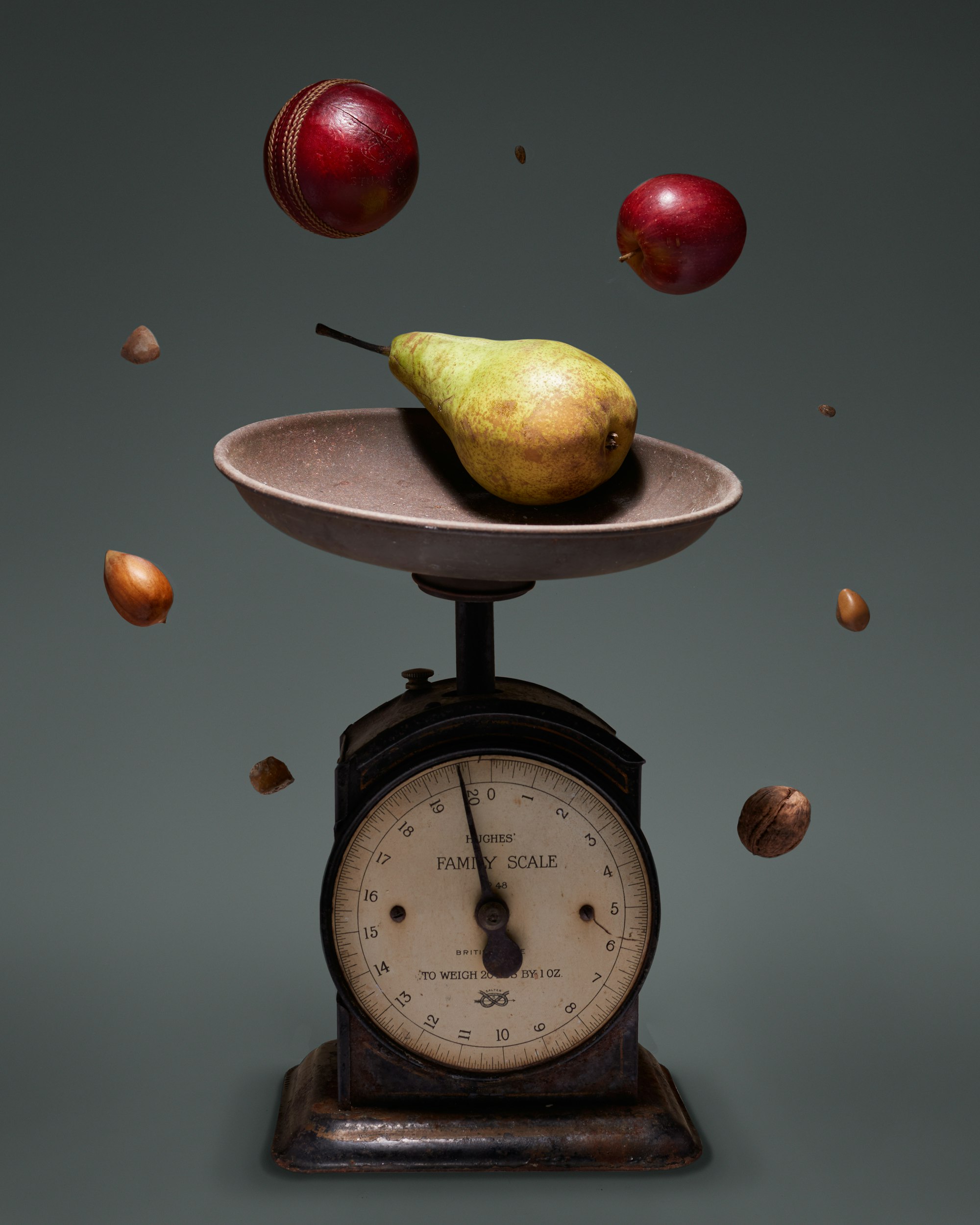
The Golden Rule
Any diet out there, any diet worth doing, should be one that is balanced, easy to maintain, but ultimately should simply evoke a caloric deficit. This is simply put as the number of calories in versus the number of calories out. We've ascertained that counting calories and weighing your food will help you to understand your calories in - but what about the calories out? This is where your BMR (Basal Metabolic Rate) is important. We need energy to essentially stay alive and this energy is measured in calories. We eat to fuel our bodies and we use this fuel to stay alive. When we are at rest we burn a baseline level of calories and this number is determined by a number of factors, including your age and weight. There are many online calculators that you can use to determine this figure (I've included one here).
This is your starting point, it's really important to know this number as if you over or under estimate it you can find yourself putting on weight or having very low energy levels that can lead to overeating. (If, like me, you've struggled with weight loss, I'm sure you're well verse in the late night trip to the fridge) - This is why I don’t like heavily restrictive diets because though going to bed with hunger pains isn’t going to kill you, how long will it be until you succumb to that hunger and suddenly you’re headfirst into a cake like Robin Williams in Mrs. Doubtfire. I’m not saying that a single slip up is the end of the world, but why make it harder on yourself. Anyway, I digress.
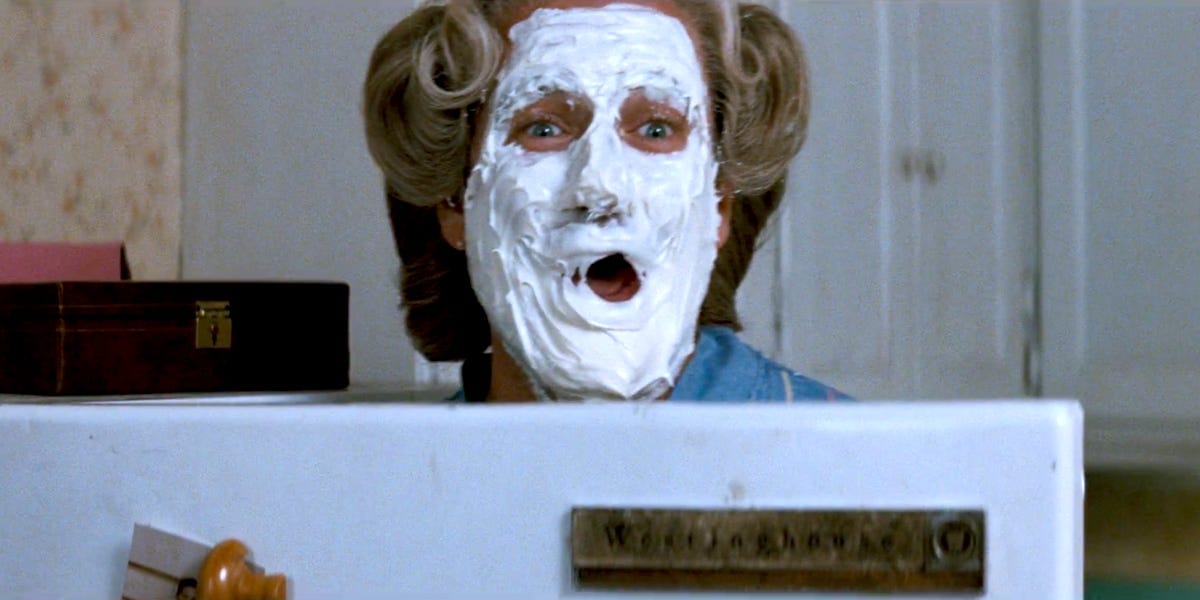
Once you've worked out your BMR, regardless of how much exercise you are planning on doing, deduct 10% (and ONLY 10%) - this should be your target caloric goal. 10% is actually not that much, and so you'll find that you may not even notice that you're dieting - this is what we really want to achieve in any diet - for it not to feel like you're dieting. Though you won’t lose more than 2lbs a week (and some weeks you may find you don’t lose anything (more on that later), but you will be able to sustain your new diet and this, my friend, is where your new and healthier relationship with food really begins.
When I started Jane Plan in 2022, I did the diet to begin with, without any extras and I was absolutely starving. I'd been over eating for a long time and having ballooned I really struggled to not be hungry. I once fell off the wagon as I was so hungry that I went to McDonalds and cried over it. I mean, come on. Losing weight shouldn’t be that dramatic. And this is the point, all you need is a balanced in our approach and eat plenty of protein. I'm not going to advocate for any diet specifically in the blog, but I want you to find something that you can stick too.
Hydration
Look, hydration is super important in any diet. Use an app like Watermeter, if you have a smart watch it will annoy you to the point of violence reminding you to drink water. Honestly it’s a good annoyance to have because staying hydrated and drinking lots of water really is so important. The whole filling up on water to stop yourself from eating is true to some extent. But when I’m hungry a pint of water isn’t going to satisfy me. But water is important - it helps your body process and move foods through your body and for our biology to really be optimal. (Or as optimal as possible, we can’t all be Arnold Schwarzenegger) Drink water. That’s the lesson. Drink.
Also diet sodas are fine, and anyone who tells you otherwise is wrong. Just don’t drink 50 cans of Diet Pepsi every day because you’ll be gassy as fuck.
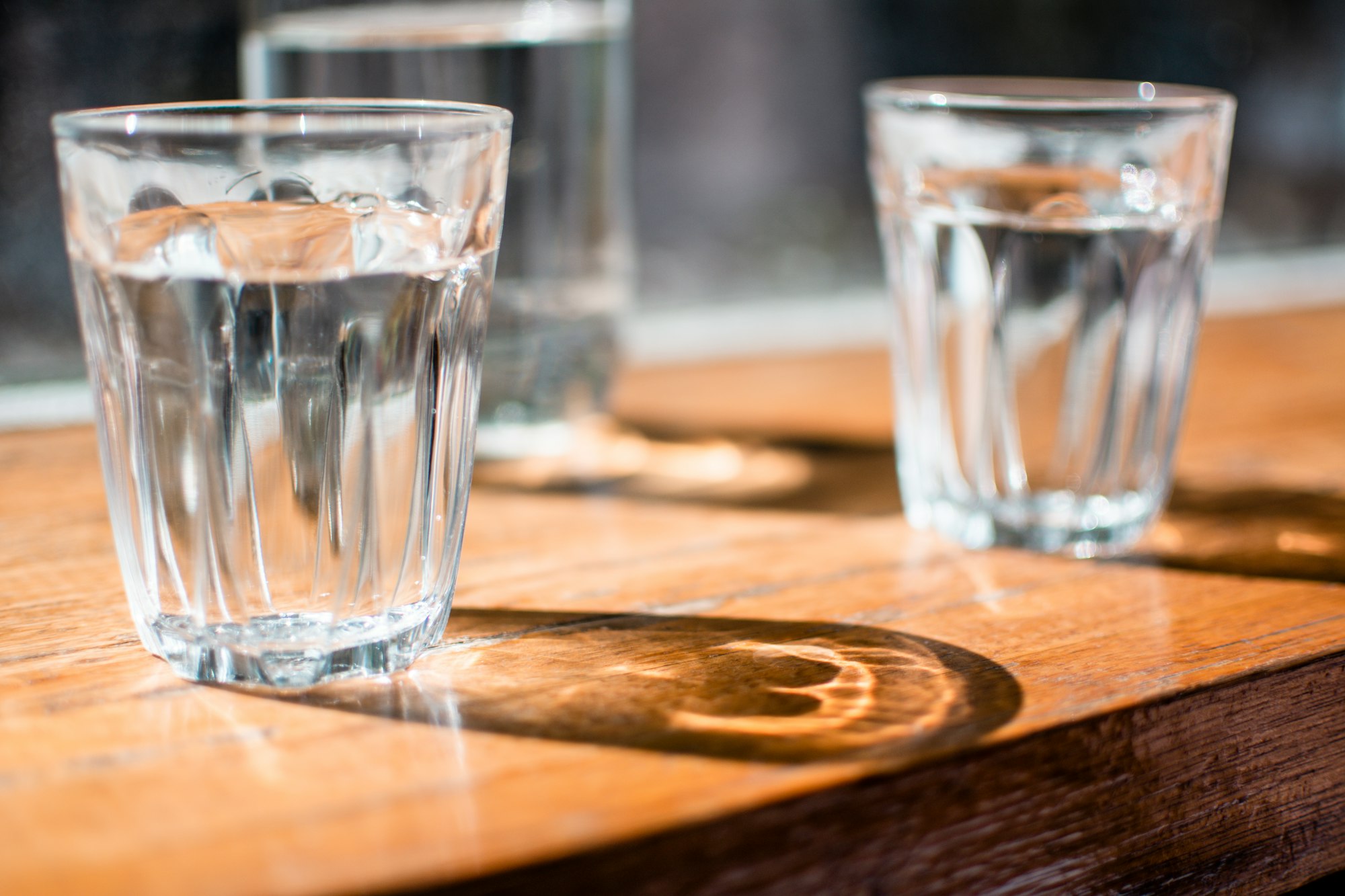
Scales tell the truth, but don’t ever trust them.
Measuring success on the scales can lead to huge amounts of pleasure and equally, huge amounts of pain. Let me explain why the scales only tell part of the story.
The scales do not lie, they are a fixed point in time, but they also don’t tell the whole story. If I was to weight myself right now as I'm writing this on December 30th 2023 I would probably weight a lot more than I would have if I weighed yesterday morning. This is because I'm on my third coffee (and it's only 7am) and last night I had a few whiskeys and we ordered take away food. There is this common misconception that you shouldn’t eat after a certain time because it’ll ‘turn into fat whilst you’re sleeping’. I’m telling you now that this is simply not true. The chicken shawarma that I ate last night is still working its way though my system, I haven't done any real activity and it's that period between Christmas and New Year where it's seemingly impossible to work out what day it is. The point being that if I ate my dinner at 5pm or 8pm it doesn’t make a difference, it was still about 3000 calories of Turkish Regret (no regrets). If I weighed tomorrow after eating a sensible amount of calories for my age and weight then I would probably weigh a lot less. The scales will always be in flux as will your weight loss. Don’t underestimate the weight of a good shit.
In fact when it comes to weight loss, over the past 2 years I’ve been saving each and every reading from the scales in Microsoft Excel. Yes, I’m a spreadsheet nerd. I basically have a spreadsheet for everything and last year I even started working on the ultimate training spreadsheet which I could never get to work properly. Anyway, let’s look at the graph as I move into my next crucial point about weight loss - It’s going to go up and down (and that’s fine), but if you’re consistent, the trend line will drop over time.
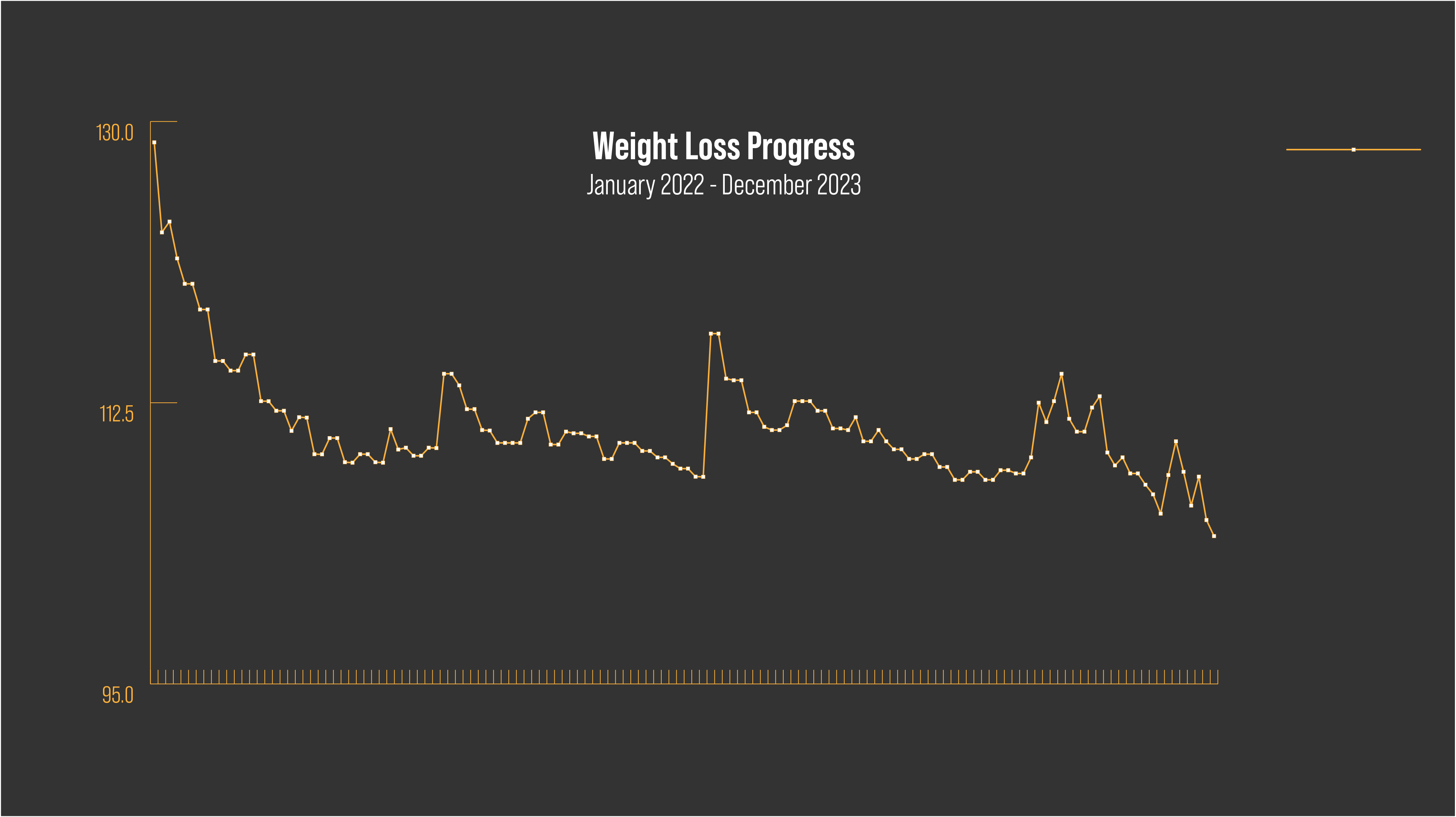
As you can see, my own personal weight loss journey has been a bit of a roller coaster, with Christmas 2022 being the significant bump in the middle of the chart. I’m expecting to see a similar size bump when I weigh tomorrow before going back into training. Other bumps included holidays abroad and some weeks, I probably just had food working its way through my system. The most important thing though is that the line is always trending down. If you’re invested in yet another app, the app Happy Scale is amazing and this does show you weight loss process as a trend line. It’s great and can import all your data easily.
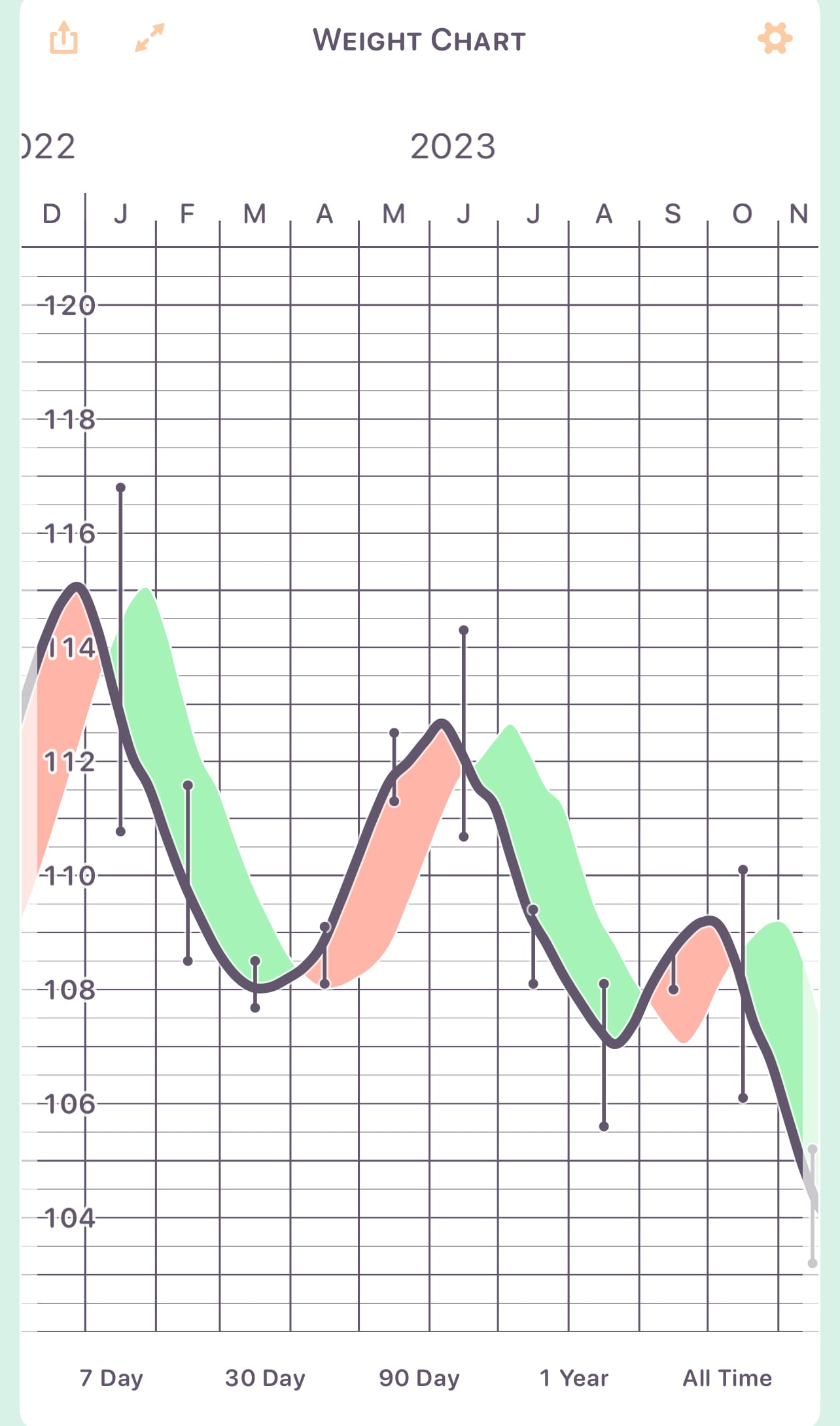
This is what you’re looking for, because weight loss - safe sustainable weight loss isn’t a quick fix. Trust me, if you lose it really fast, you’ll probably end up putting on with interest. If you weight each week, that’s totally fine - but I’d say you want to compare every 3 to 4 weeks and you’ll see progress there.
Also, I should add, for my own personal weight loss, I have been purposefully building muscle mass which means that though the scales are showing that weight loss isn’t dropping all the time, my body composition has been changing. And it was only when I did a final 8-week cut before Christmas that all that hard work started to reap some aesthetic benefits, as you can see in the photo below:
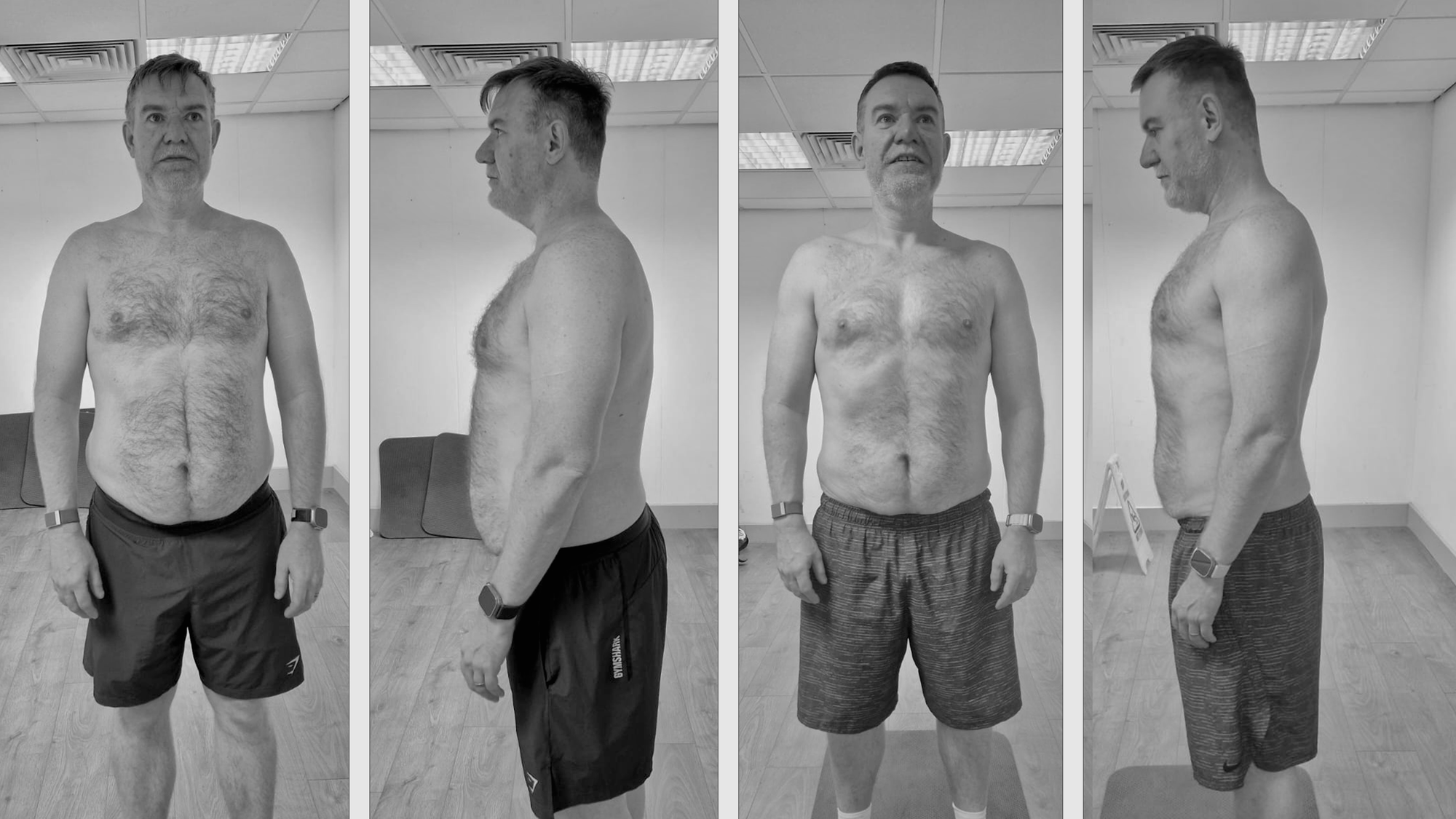
In this case, I weighed each week and also took a measurement around the circumference of the belly. This was a huge moment for me personally as I was coming to the end of my second year and it was the first time I really saw the difference in my body.
I keep a journal, as readers of blog will know, and if you’re interested in the effects that the cut had on my training and energy levels let me know by simply replying to my newsletter email and I’ll start drafting 😀
With the change in body composition, here’s an interesting fact - between July 2022 and July 2023, I lost a total of 1kg. I looked different and I’d gone from a 44” waist line to a 38”, but the scales didn’t know that. They just measured my mass and I only lost 1kg. So yes, the scales do tell you the truth, but please, don’t trust them.
This Christmas I ate like a pig. I am sure by the end of Boxing Day I was 50% Baileys and 50% Quality Street. My Mum kept commenting on how much I was eating and I just said ‘what is the point in going to the gym and being on a diet for the last 24 months if I can’t enjoy food like this from time to time’, and though some may call this bad advice, the truth is this: You can enjoy food, it’s about limiting any calorie excess to vacations, special occasions and events. But, you also need to know yourself - if you fall off the wagon; how hard will it be for you to get back on it? With all life style changes, when you set out on a new path, I think it’s important to be honest with yourself; don’t set yourself up for failure. It took me 6 months to move from changing the way I ate to adding fitness into my life. I knew if I’d made dozens of changes and fell off the wagon it would snowball. So why not start as I wrote at the beginning of this with 2 things, 1. Tracking your food and 2. Cutting 10% from your BMR for a small deficit. Then after a few months, see where you are and make the next necessary change. However, I will say this - any chance you get to walk more, is a chance to really support your health and weight loss goals. Genuinely, the best thing you can do for weight loss isn’t strength training, it’s not running a marathon - it’s walking. Get a nice decent pace and get those steps in. I’ve listened to so many books on Audible when I’ve been out. This is partly why I want to leave Manchester, though it has great walking areas near where I live, It rains all the time.
Okay, back to the Christmas just gone. If you’ve eaten like a pig as I have , you can try and offset the additional calories by going for a walk (unless you live in Manchester, in which case you’re going to be walking in the rain, which is never fun). But also don’t feel guilty for taking some time off from whatever diet you’re practicing. In training it’s bad advice for someone to be constantly on a ‘cut’, where you’ll reduce the calorie intake to lose fat, but continue to train to avoid losing muscle mass. And on the flip side of that, a ‘bulk’ is where you do the opposite, but you want to build muscle using the extra calories (usually in the form of protein). As with all diets, cycling back to maintenance calories (this is your BMR as discussed earlier) is actually a good way to reset for a couple of weeks or a month and then you can go back to reducing calories. Of course, it goes without saying that to be successful in both a dieting and maintenance phase requires tracking food accurately.
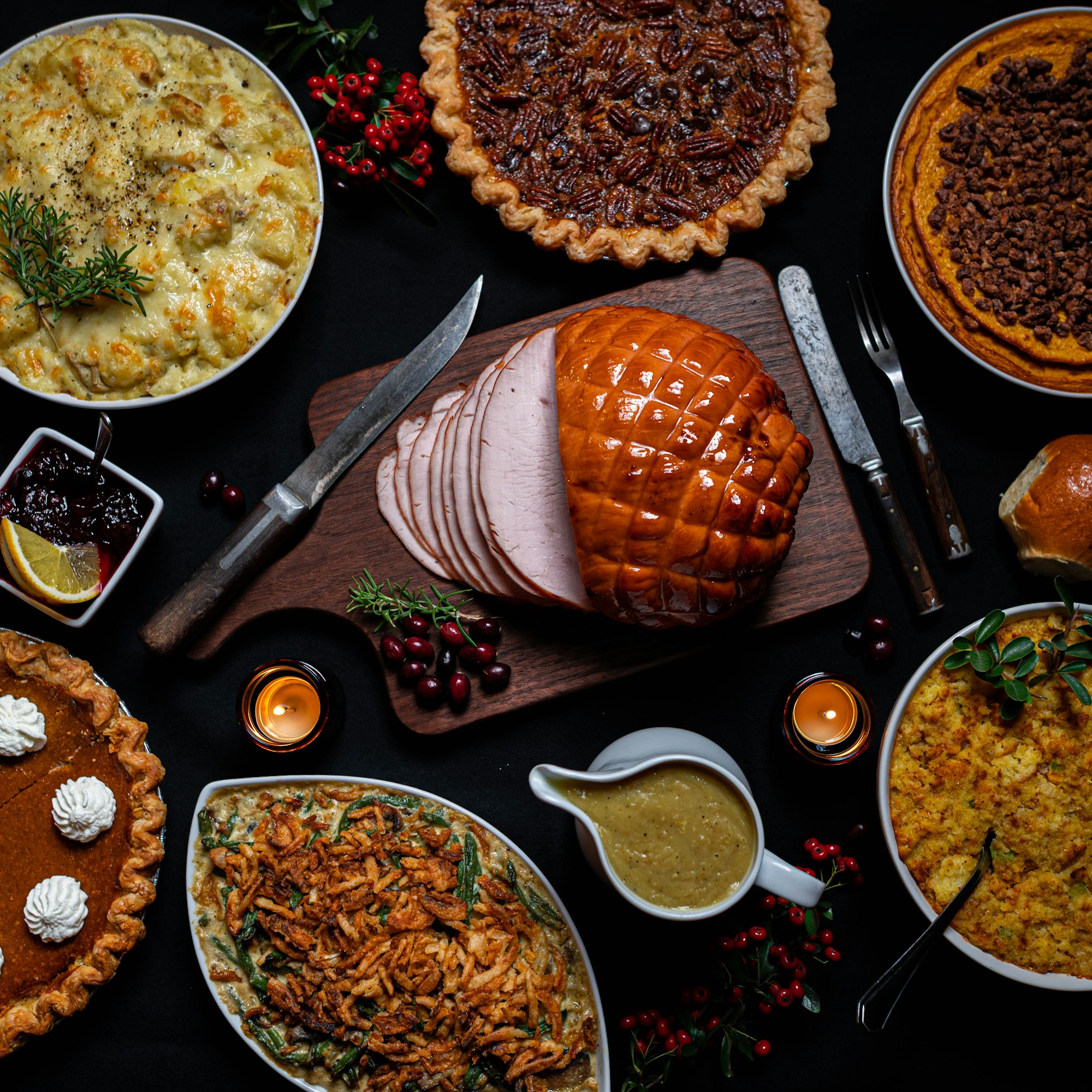
The Carbohydrate Crisis
Did you know that for every gram of carbohydrate that your body stores it needs 4 grams of water? This is because carbs are stored in the body as glycogen and this is made up of 4 parts water to 1 part carbohydrate. This is why when we enter into a new diet, we often find we eat less carbs - or if we go on a keto diet, where we have huge reductions in carbs, our water weight drops significantly. (And why if you eat a lot of bread after a restriction in carbs we may find ourselves feeling bloated)
Don't be afraid of carbs, they are a vital component in any balanced diet, but also, don't be melancholy if you find that your progress slows after the first week. Your body is adjusting as its composition begins to change. The problem with carbs is that they are so fucking good. Nothing like coming in from a night out and doing lines of sourdough. (I’m joking, please don’t do that).
When your body needs energy quickly, it will utilise the glycogen in your body. This is why those who do HIIT (High Intensity Interval Training) or runers ‘carb up’, but for most of us, 4 slices of toast with butter and marmite and you’ve pretty much gone over your recommended carbohydrate intake. Carbs are not your enemy, but you can have too much of a good thing. Which I guess is why we got here to begin with.
And on that note, thanks so much for reading this first blog of 2024. This is part of my New Year’s Resolution to finish and publish 50 blogs/essays as last year so many went unfinished or unpublished. If you haven’t already don’t forget to subscribe to the free monthly newsletter.
Have a fantastic new year and all the best for your health and weight loss goals for 2024.
